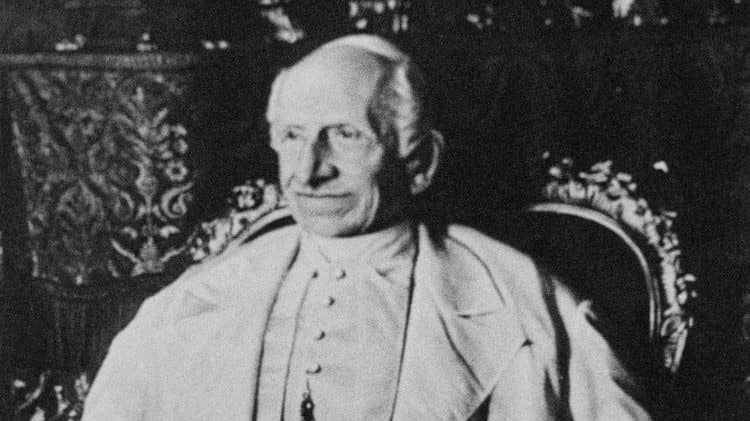ROME – Although it’s basically apocryphal, a saying attributed to St. Francis of Assisi advises, “Preach always, and, when necessary, use words.” Popes, of course, use a lot of words, but they also find plenty of other ways to preach – in gestures, through their travel, in policy decisions and personnel appointments, even through the meetings they choose to take.
On Saturday, Pope Francis will speak volumes – quite apart from what he actually says – just by meeting Rebecca Bitrus, a Nigerian victim of Boko Haram, as well as Ashiq Masih and Eisham Ashiq, the husband and daughter of Asia Bibi, who’s been on death row in Pakistan since 2010 on a blasphemy charge.
In effect, the meeting is a powerful statement about the concern of the pope, and the Catholic Church, for anti-Christian persecution. It’s organized by Aid to the Church in Need, a papal foundation supporting suffering Christians around the world.
Popes have long used meetings to make statements, even if their full significance wasn’t always clear in the moment.
When St. Pope John XXIII met the son-in-law and daughter of Soviet Premier Nikita Khrushchev in March 1963, marking the first time a pope had met a leading figure from the Communist regime, it was a powerful statement about the Church’s desire for dialogue to heal Cold War tensions, although it didn’t directly result in any sea change in global power politics.
Eighteen years later, St. Pope John Paul II met Polish labor leader Lech Walesa for the first time in the Vatican, using the occasion to pointedly warn the Soviets to stay out of the conflict between Solidarity and Poland’s government. It would be eight more years before the Berlin Wall fell, but that meeting helped set the dominoes in motion.
Similarly, it may not be immediately clear what consequences will issue from Saturday’s encounter between Francis and victims of anti-Christian persecution, but nonetheless, the meeting is a clear signal of the pontiff’s engagement.
My Crux colleague Claire Giangravé and I had the opportunity to meet Bitrus, Masih and Ashiq on Friday at the Domus Paolo VI, a residence and visitor’s center in Rome, and the conversations were both emotionally wrenching and also a reminder of how much these three people incarnate the broader story of anti-Christian persecution in the early 21st century.
Bitrus was kidnapped from her community in Nigeria near the border with Chad in 2014 by Boko Haram and taken into a forest, where her three-year-old son was drowned in a river because of her refusal to convert to Islam. She was later forcibly “married” to one of her captors, became pregnant, and bore a child. Upon her escape, she welcomed that child into her family at the urging of her older son, and now says she has forgiven her captors and abusers because of her firm faith in Christ’s message of forgiveness.
Masih and Ashiq described Bibi as remaining strong despite the long years on death row, and said they remain “hopeful” for positive developments in her case after multiple setbacks and delays in the judicial process. Yet the frustration in their voices was also evident as they talked about the failure of international assistance for the cause of Asia Bibi to ever reach their family, including the fact that they receive no support from the local Church in Pakistan.
They, too, ultimately were understanding, saying they acknowledge that anyone in Pakistan who’s seen as having a relationship with Bibi risks harassment, persecution, and even death.
All those realities – the unimaginable suffering, the strength to forgive, the feelings of isolation and abandonment, and the staggering resilience and hope – are characteristic of hundreds of thousands of other Christians around the word who’ve paid a price for no reason other than their religious faith.
The high-end estimate for the number of new Christian martyrs every year is around 100,000, while the low end is conventionally pegged at around 8,000. That works out to somewhere between one Christian killed for the faith every five minutes, and one every hour – either way, it’s a human rights scourge of staggering proportions.
Open Doors International, a Protestant watchdog group that tracks anti-Christian persecution, estimates that globally, some 200 million Christians every day are at risk of harassment, persecution, arrest, torture, and murder.
Certainly, the Catholic Church ought to be concerned wherever human rights are violated, no matter who the victims are. Certainly, too, there’s a danger of turning anti-Christian persecution into an ideological cause, using it to score political points in Western debates rather than to help victims and to prevent further outbreaks.
Yet the raw reality is that Christians are, statistically speaking, the most persecuted religious minority in the world, and often a wall of silence surrounds that suffering. Because Westerners have a hard time imagining Christians as the victims of persecution, they tend to treat experiences such as those of Bitrus and Bibi as isolated and limited rather than systematic and widespread.
Rupturing that wall of silence is, in effect, the point of Francis’s meeting on Saturday, which comes on the same day that Rome’s Colosseum will be bathed in red light to call attention to anti-Christian persecution.
One imagines that Francis actually will say something in the meeting, and it may or may not make headlines. The most important statement he’ll make all day, however, will come when he walks in the room.

















